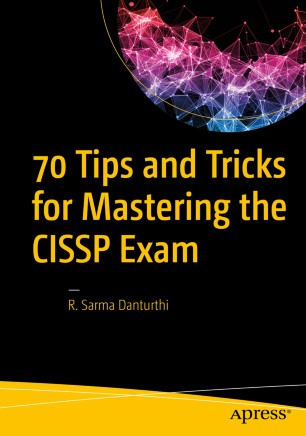

Most ebook files are in PDF format, so you can easily read them using various software such as Foxit Reader or directly on the Google Chrome browser.
Some ebook files are released by publishers in other formats such as .awz, .mobi, .epub, .fb2, etc. You may need to install specific software to read these formats on mobile/PC, such as Calibre.
Please read the tutorial at this link. https://ebooknice.com/page/post?id=faq
We offer FREE conversion to the popular formats you request; however, this may take some time. Therefore, right after payment, please email us, and we will try to provide the service as quickly as possible.
For some exceptional file formats or broken links (if any), please refrain from opening any disputes. Instead, email us first, and we will try to assist within a maximum of 6 hours.
EbookNice Team

Status:
Available0.0
0 reviewsLearn how to think and apply knowledge in a practical way. Tackling the CISSP exam is vastly different from simply understanding the subject matter. Even the most experienced security professionals can fail because the questions are tricky and ask the test taker to pick the best of the options given.
The CISSP exam conducted by ISC2 is the hardest and most rewarded cybersecurity examination. The test has several domains and sub-domains and covers a wide range of topics on security, including cyber and physical building security fields. It also covers breaches, discovery of breaches, and how to report data breaches.
Because the subject area is vast and the questions are almost never repeated, it is hard for the exam taker to memorize or quickly discover the correct solution. The four options given as answers typically have two very close matches to the question. With quick analysis, it is possible to discover from the verbiage of a question what is truly being asked and learn how to find the closest possible solution without spending too much time on each question.What You Will Learn
Who This Book Is For
Experienced security practitioners, managers, and executives interested in proving their knowledge across a wide array of security practices and principles, including chief information security officers, chief information officers, directors of security, IT directors and managers, security systems engineers, security analysts, security managers, security auditors, security architects, security consultants, private contractors, and network architects